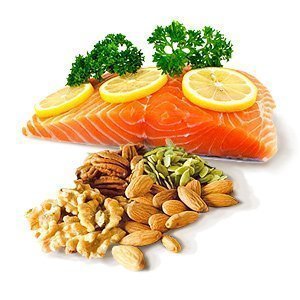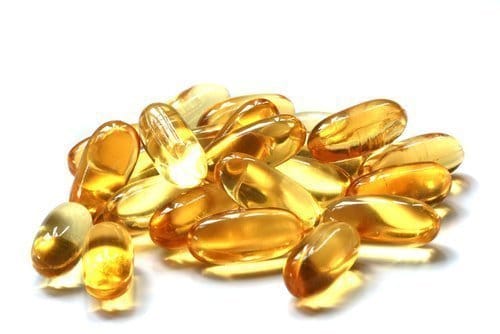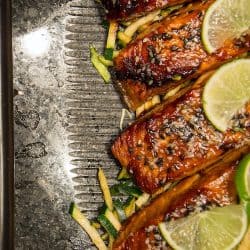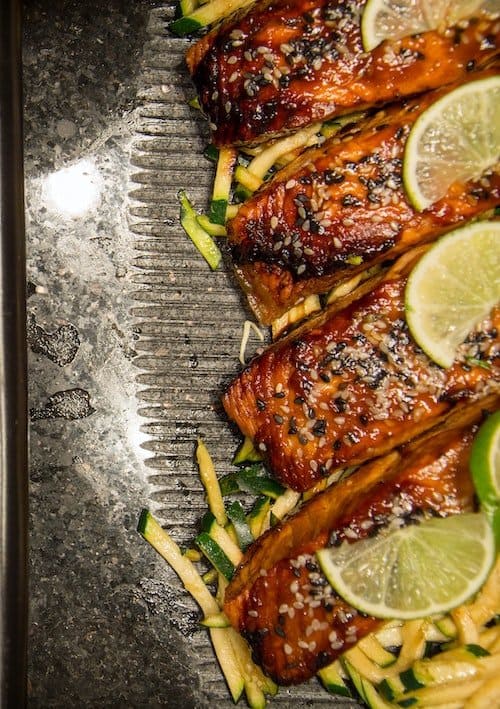Do Omega-3s Really Help Your Heart?
While we’re on the subject of the heart-healthy diet for American Heart Month... Many people assume they should take an omega-3 or fish oil supplement to protect their heart, but a number of recent research studies on this topic aren’t so clear. Many people wonder if it's worth taking omega-3 supplements for heart health.
Interestingly, one very large study published in the Journal of the American Medical Association, indicated that omega-3 supplements had no significant effect on preventing heart attacks or strokes in study participants. So does this mean you should scrap the omega-3 supplements and stop eating fish?

Which Foods Have Omega-3 Fats?
First, it’s important to understand that not all omega-3s are created equal. Omega-3 is a type of polyunsaturated (healthy and essential) fat that comes from either:
- Plant sources like flaxseeds, chia seeds, walnuts, and leafy greens
- Cold-water fish. like salmon, sardines, or anchovies
While both forms have been shown to have benefits in various studies, the marine sources of omega-3 offer more potent health benefits overall. That's because it's a little more work for your body to convert the plant form of omega-3 (ALA) into the EPA or DHA, the more active forms.
And although there have been studies like the one mentioned above, there is also much research that finds fish oil very beneficial for the heart, brain, joints, depression, cancer, ADHD, Alzheimer’s, etc, etc. For heart disease, fish oil has definitely been shown to reduce triglycerides, blood pressure, and inflammation throughout the body. It also helps prevent excessive blood clotting associated with plaque buildup, and irregular heartbeat.
It's just not completely clear if it's as effective in people who already have heart disease, or if taking a pill works as well as eating fish.

So I still think it’s helpful to get a good dose of omega-3 each week, BUT – I always recommend getting it from fish first, supplemented with a few servings of nuts, seeds, and lots of leafy greens.
Oily fish like salmon, sardines, herring, and bluefish have the highest amounts of omega-3 fats, but all fish – even shellfish like shrimp and scallops have some. Here’s a list of the omega-3 fat content in commonly consumed seafood. In addition to their heart-healthy fat, seafood is also very low in artery-clogging saturated fat, and it provides a great source of lean protein. The American Heart Association recommends at least 2 servings of seafood each week for a total of 6-8 oz/week.
Shellfish and Cholesterol - Is it Bad for You?
I've met many people who don’t like salmon or other fatty fish, and they are afraid to eat shrimp or other shellfish because they have cholesterol.
It’s true that shellfish have cholesterol, but it’s saturated (bad) fat, far more than dietary cholesterol that will raise your cholesterol. Like all other seafood, shrimp, scallops, and other shellfish are extremely low in saturated fat- so feel free to enjoy them! Just don’t fry, and skip the butter, as both are extremely high in saturated fat.
If you need a quick and easy recipe for almost any fish – try one of my favorite super-easy glaze recipes for grilled or roasted fish.
Recipe

Sriracha Honey Glazed Salmon
Ingredients
- 8 ounces salmon fillet
- salt and pepper
- 1 tablespoon Sriracha sauce
- 3 tablespoons honey
- 1 tablespoon sesame seeds
Instructions
- Preheat the grill to 400 degrees and spray the grill grates
- In a small bowl, combine the sriracha sauce and honey. Stir well to combine.
- Sprinkle the salmon with salt and pepper on both sides.
- Place the salmon on the grill and cook for about 5 minutes. When the salmon is almost cooked through, brush it with the glaze. Finish cooking for another 3-5 minutes until the salmon is opaque and flakes easily.
- Remove the salmon from the grill, sprinkle sesame seeds over the glaze, and serve.
Nutrition
Eat well!

